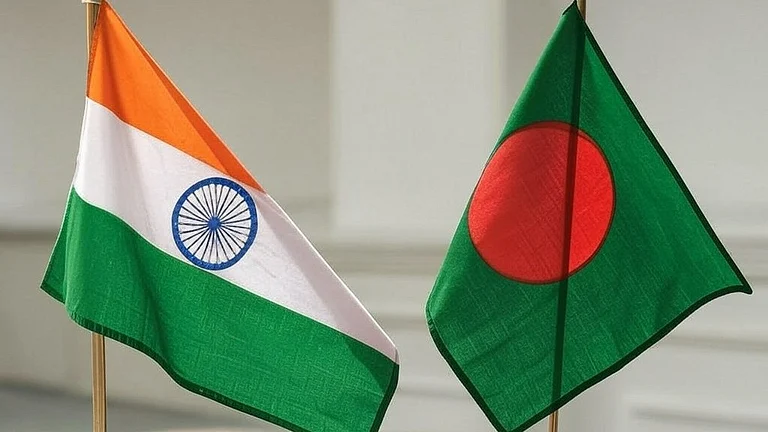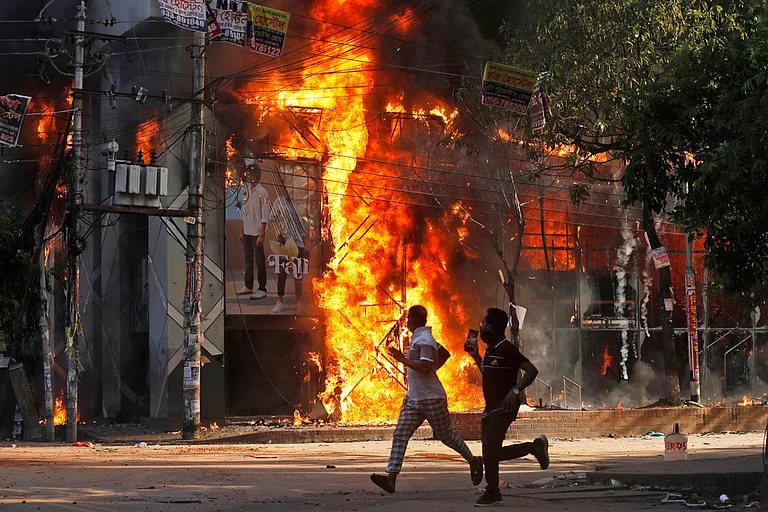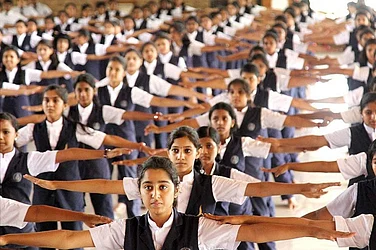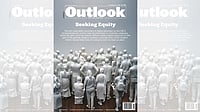India's recalled High Commissioner Sanjay Kumar Verma termed Canada's behaviour "the pits", saying that New Delhi was backstabbed and treated in the most unprofessional manner by a nation that is supposed to be friendly.
India and Canada's ties hit an all-time low with Ottawa's probe into the 2023 Nijjar killing and PM Justin Trudeau's statement regarding Indian government officials' involvement in the same.
Verma was named as a "person of interest" by Canada last week in its investigation into the June 2023 killing of Khalistani separatist Hardeep Singh Nijjar -- a Canadian citizen. Before Ottawa could take any further action, India recalled Verma and five other diplomats who were also named in the case.
In an interview with news agency PTI, Verma said, "This is the pits. This is the most unprofessional approach to a bilateral relation. There are diplomatic tools available in the hands of a diplomat. Those tools could have been used" instead of seeking to interrogate a nation's top envoy and other diplomats.
The recalled Indian diplomat also addressed the genesis of the Khalistani movement in Canada, the way local politicians support it for vote bank, and the sort of criminal activities the Khalistanis carry out to increase their following/numbers.
"A child that cries the most gets fed first by the mother. Similarly, even though they are only a handful, they shout the most and get the most attention from Canadian political backers," Verma added.
He noted that extreme hard-line Khalistanis are only about to around 10,000 in number, and their support is somewhere around 1 lakh in the nearly 8 lakh Sikh population.
"To get support they intimidate common Sikhs there, including with threats such as 'we know where your daughter is studying'," Verma said.
He said that Khalistan has been made into a business in Canada. "In the name of Khalistan, they do human trafficking, drug trafficking, gun-running and all. They earn a lot of money through that and also through gurudwaras and they use part of that money for all nefarious jobs. All the dirty things that you can think of they are involved," Verma noted.
Verma recalled the events leading up to the diplomatic showdown and said that he was at the Toronto airport on October 12 when he received a communication from the Canadian foreign ministry asking him to come to their office the same evening. Since he was flying back that evening, Verma sought time for the next day when he went to the Global Affairs Canada (foreign ministry) office with his deputy.
"After a bit of conversation, they told me that I along with five other Indian diplomats and officials, are 'persons of interest' in the inquiry of the killing of Nijjar. And, therefore there was a request to waive off my diplomatic immunity as well as the diplomatic immunity of my colleagues so that we could be interrogated by the Royal Canadian Mounted Police, the investigating agency there. So I took that as a message," Verma said.
He said that such a thing does not happen in diplomacy. "Generally speaking, there will be some kind of messaging to start with. I didn't get that either. And, all of a sudden this was handed over to us. So, I would say this demonstrates the distrust, this demonstrates a kind of backstabbing that was done to us by our very professional colleagues in Canada," Verma added.
This was Verma's first account of his terrifying experience in Canada since returning to New Delhi.
"Both are democracies, both are countries of rule of law. We have a huge diasporic interest in Canada. We are good trading partners, investment partners, etc. So, we had been doing well in the overall canvas of our bilateral relations. And, this came to me as a shock," Verma said.
However, Verma did not let these developments beat his spirit. "My face did not betray any emotion, not even a wrinkle of worry... I was happy about the fact that I did not give them a sense of feeling that this man was sad, or that I was afraid."
In an interview with CTV's Question Period, the High Commissioner -- now recalled -- denied all accusations laid forth by Canada and labelled the charges as the Trudeau administration's political agenda.
He had reiterated India's call for evidence in the case.
Canadian PM Justin Trudeau had accused the Indian government of ordering the assassination of Nijjar, who is designated as a terrorist by New Delhi and a known Khalistani separatist. He was gunned down outside a gurudwara in British Columbia's Surrey region on June 18, 2023.
Trudeau had publicly claimed that Ottawa has "credible allegations" pointing to India's involvement in Nijjar's killing. However, after sharing no proof with India, the Liberal Party leader admitted that the accusations against India were based on intelligence and not "concrete evidence".
"The problem is that when he accused, he himself admitted there was no hard evidence. There was intelligence. On the basis of intelligence, if you want to destroy a relationship, be my guest," Verma told CTV.
India and Canada continued to face strained ties, with each repeated accusation worsening the situation.





























